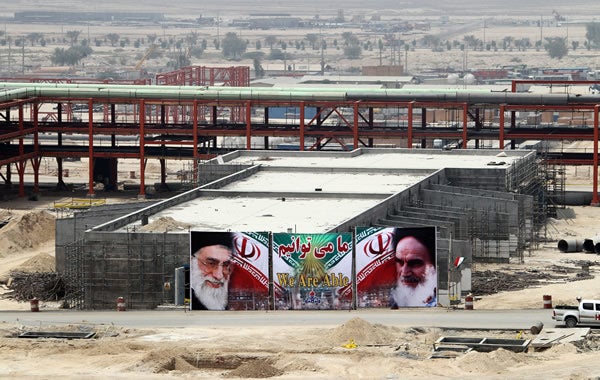Heritage Findings Reaffirmed: U.S. Not Ready for a Massive Oil Crisis
Ariel Cohen / Michaela Dodge /
The United States lacks effective energy policy responses in the event of a major oil crisis. This was the conclusion reached at a recent simulation by Securing America’s Future Energy. Little surprise here: We arrived at the same conclusion in three energy simulation exercises conducted at The Heritage Foundation in 2007, 2008, and 2010. These exercises, in which top current and former government officials, diplomats, and experts participated, demonstrated that there are significant security and diplomatic vulnerabilities to terrorist attacks. The dangers the Heritage energy game identified included domestic and global oil producing, processing, and transportation systems.
Terrorists and other violent non-state actors, as well as protracted turmoil in principal OPEC and non-OPEC oil-producing countries, have the potential to cause a sharp drop in oil production and acute price spikes.
The latest Heritage energy simulation exercise demonstrated that selective embargoes, low price guarantees, odd-even day sales, and long-term projects have no significant effect on post-crisis oil prices in the short term. The only way for the U.S. government to reduce actual petroleum costs is to increase supply or reduce demand and to pursue policies that would moderate the negative economic impact, e.g. withdraw additional petroleum from the Strategic Petroleum Reserve. As natural gas pricing mechanisms are often tied to oil, additional measures to keep energy prices in check would include reopening of nuclear facilities in Eastern Europe or increase in piped gas volumes and Liquefied Natural Gas (LNG) sales from Russia.
The Heritage energy game concluded that any economic crisis that includes an oil price spike will benefit Iran, America’s primary adversary in the Middle East. Tehran’s regime is exploiting its energy resources to fuel a military buildup, developing an extensive nuclear weapons program, and is exporting a Shia Islamic revolution throughout the Middle East, especially to Iraq, Lebanon, and Bahrain.
So far, the Obama Administration’s efforts to stop Iran’s ballistic missile and nuclear weapons programs are failing. According to the most recent reports, Iran has been significantly advancing its ballistic missile capabilities and is preparing to triple its uranium enrichment output. The U.S. government must accompany sanctions with support of Iran’s civic movement as well as a credible threat of the use of force to disrupt Iran’s nuclear weapons program, should Iran come closer to achieving this capability.
Heritage’s simulation clearly showed that reliance on markets and international security cooperation in peacetime and in crisis can go a long way to restore the confidence of governments, corporations, and consumers. The United States and its allies will need to exercise decisive and effective leadership to mitigate impacts of future energy crises.

